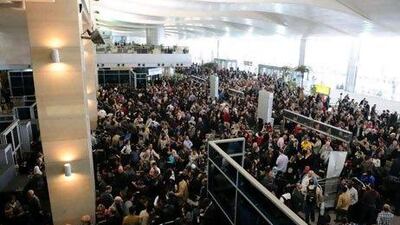Unrest in north Africa has exposed a need in the region for broader insurance protection against the risks of political crises, says the head of the UAE's insurance body.
Local companies as well as multinational corporations with operations in the region are demanding greater cover.
Many companies' profit margins were dented by the strife that paralysed the economies of Egypt and Tunisia. Some multinationals evacuated staff to safety as protests raged.
"Businesses want more cover and want to take precautionary action against this type of event especially with the risk of what is happening spreading, maybe not to the GCC, but the rest of the Arab world," said Fareed Lutfi, the secretary general of Emirates Insurance Association and director of insurance services at Dubai Holding.
Most insurers usually offer only limited protection for civil strife and other events affecting businesses.
Protection against strikes, riots and civil commotion is often included in a clause covering a maximum of seven days, said Mr Lufti. The impact on financial services and trade caused by unrest in Egypt has lasted more than two weeks.
Terrorism and sea piracy have become two of the biggest concerns for multinationals and other companies operating in the region. A rise in pirate attacks near the coast of Somalia and further afield has escalated insurance costs for many maritime operators.
In the north African situation, anxiety had gradually shifted from initial crisis management to focusing on how to get business back on track as the outlook improved, said Anil Khurana, the director of PRTM Management Consultants in Dubai.
"A lot of companies were caught unprepared," said Mr Khurana. "Many don't have insurance for events like this and most insurers won't insure against this anyway. The first issue for many companies was the security of staff and safety and to ensure that cash deposits were safe."
Manufacturers in the UAE and Saudi Arabia were among those struggling to recommence their supply chain business after the havoc threatened contracts, he said.
The lesson for many companies is to ensure they could act quickly and with flexibility to fast-moving crises, he said. Spreading company assets over various locations is good practice, he added.
PRTM has advised companies on how to cope with crises such as the Mumbai terror attacks and Hurricane Katrina in the US.
Aon Risk Solutions, a risk management advisory firm, recommends that companies begin planning for the effects of any potential ramifications.
"Companies have a duty of care to their employees and it would not be a stretch to say that firms not looking to where the next hot spots may be are failing in that," said Justin Priestley, the executive director of Aon's crisis management team.
"Companies need to make sure they have robust worst-case scenario plans in place."

